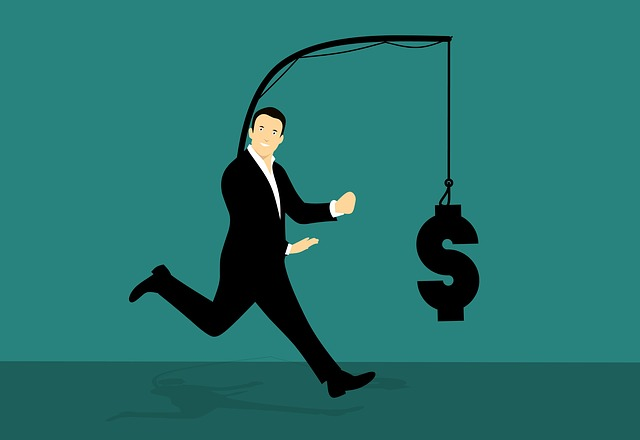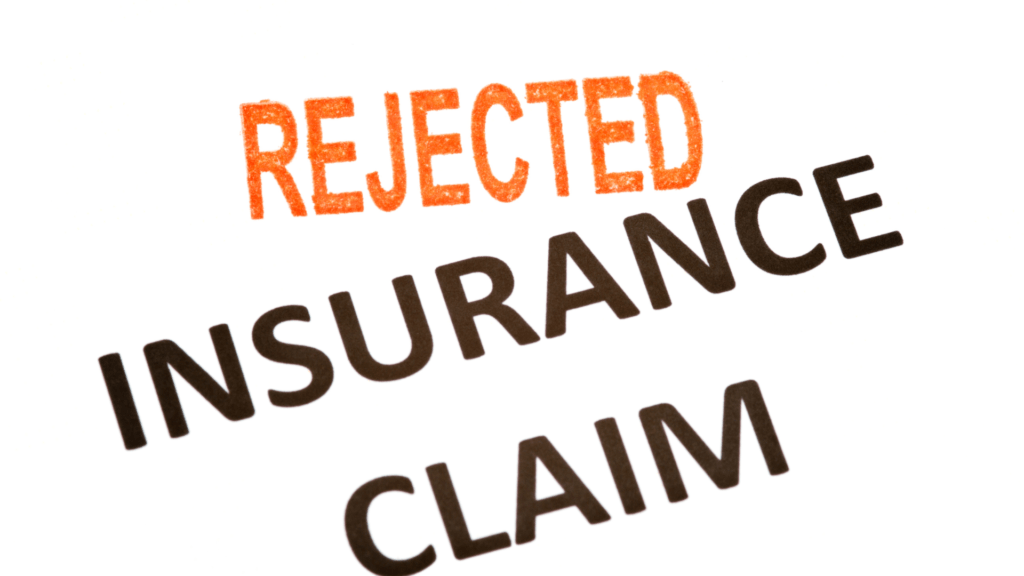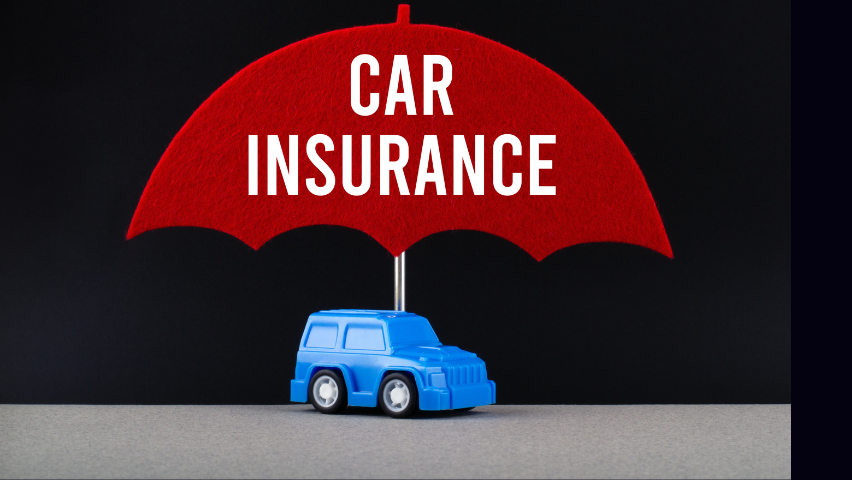Assume you bought a liability car insurance of $25/50/25 which is the same as $25,000/50,000/25,000. Could you tell me your policy limits? Yes, you have had a car accident and fortunately, your car is covered by your auto insurance company!
How do you proceed to file a claim for your settlement? Can you make a claim that is more than the limit of your insurance policy? and what happens when a car accident claim exceeds insurance limits? Is it possible to get a payout that is higher than your insurance limit? what do you do if you do not agree with the suggested claim settlement fee?
If you are looking for a short answer:
In scenarios where your car insurance claim exceeds your policy limits, your insurance company pays up to your policy limit and you pay the remaining amount from your pockets/savings.
If the above answer is still confusing you or does not come naturally to you, do not worry for I will explain with good examples throughout this article. You are free to jump to sections of your choice by going through the content list below.
Page Contents
what are the limits in insurance?
I earlier gave an example of a $25/50/25 car insurance liability. The above can be interpreted as:
- Your insurance company is obligated to pay up to $25,000 for one person injured (Bodily injury -BI) in the accident you caused.
- The company pays up to $50,000 for all people injured (BI) in the accident you caused, and
- The company will pay up to $25,000 for any property damaged (PD) in the accident you caused.
In the scenario, $25,000, $50,000 and $25,000 are what we call the limits of your liability policy. Other car insurance policies like comprehensive or collision behave in the same way.

what does limits of insurance mean?
Now that you understand what the limit of your insurance is, the question remains what do those figures mean? I explain below.
Assume you are involved in a car wreck and deemed to be the at-fault driver. In case you are the lucky bastard and had bought liability coverage worth $25/50/25. This policy coverage should save your A*s or at least make your life easier.
Let’s say the car wreck you caused injured 2 people and damaged the other driver’s car. In this situation, your policy will help you pay the medical bills of the 2 people injured by paying up to $50,000 and again pay car repair costs of up to $25,000.
If the medical bills of the 2 injured people exceed $50,000 or the car repair costs exceed $25,000, you will be required to cover the additional amount from your own pocket, or else you will be sued to produce it by selling your property or attaching your future income.
can I recover more than the insurance policy limits?
Your company pays up to what is stated as your insurance policy limit. If your bodily injury liability states a limit of $50,000, your company won’t pay any amount that exceeds $50,000.
According to Brown & Crouppen law firm, the average BI claim settlement fee is $62,600 in the USA.
If you are the guy who carries only $50,000 as your BI limit and you caused an accident in which more than one person got injured,
then definitely you will be asked to fork out the difference between $62,600 and your policy limit of $50,000.
In simple terms, you will only get the amount you agreed upon with your insurance company as is stated in your policy. Better re-read your policy and grab every detail.
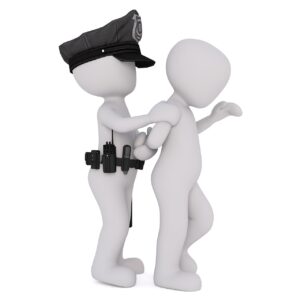
Can you sue for more than insurance limits?
If you carry any insurance coverage, there may be a time in the future when you will need compensation or coverage following any financial losses. You will most likely file a claim against your insured event like fire, collision, theft, etc.
Insurance companies pay exactly the equivalent of your loss as long as it does not exceed the limit of your policy. You are not supposed to get profit or benefit from insurance coverage.
If the car you lost in the accident had a market value of around $20,000 just before the accident and you carry a collision coverage limit of $25,000, yes, your company will happily pay $20,000 but not the full $25,000.
If you carry a collision coverage limit of $25,000 and the market value of your car just before the accident was $40,000, your insurance company will pay the maximum limit of your policy ie $25,000 and you will top it up with extra cash should you need to buy the exact $40,000 worth replacement.
Assume you carry $25,000 as your collision coverage. If you think the market value of your car before the accident was $20,000 but your car insurance thinks the market value of your car was $15,000, then things go a different way.
You and your insurance company should go to a round table and agree on a new settlement fee. Actually, my insurance broker recently told me that I should never accept the first settlement fee from an insurance company. Companies choose their first settlement amount well knowing there is room for subsequent negotiations.
If you and your insurance company can not agree on the settlement fee, yes you can sue the company for more money, but you cannot sue for more than your insurance limits.
What are insurance coverage limits?
I already explained this but to stress more, insurance coverage limits are the maximum amount of money you will receive as a settlement or compensation once the insured risk occurs. You will receive $40,000 or less after your car is totaled if that is the amount that you agreed upon in your policy as the limit.
The principle of any insurance coverage is to restore you back to your financial position after the accident or following an insured event.
If your house was valued at $150,000 before hurricane damage, your home insurance company will pay you $150,000 or less. No way you will ever receive any figure above $150,000. This is called the law of indemnity.
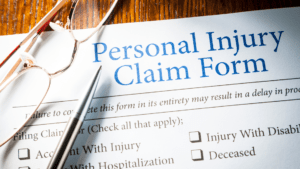
What car insurance limits should I have?
There is no maximum amount of car insurance you are required to carry. Every one of us has different insurance needs that depend on factors like:
- The car you have (Age, type, model, mileage, make, cost of your car, etc)
- You, the driver (financial situation/budgets)
- Your Geographical location. Some insurance coverages are regulated and mandated by different states/countries.
If you asked me what car insurance limits should you have, I would ask you to buy liability limits of $100/300/100. You should of course also buy enough insurance coverage for your cars like collision and comprehensive coverages.
$100/300/100 liability car insurance limits are interpreted as:
- Up to $100,000 coverages if one person is injured (BI) in the accident you caused.
- Up to $300,000 coverage should more than one person get injured (BI) and
- Up to $100,000 as coverage for any property damages (PD liability)
How to find out someone’s insurance policy limits
You are in the hospital and your bills are increasing day and night. You ask the other at-fault driver insurance adjuster about the insurance coverage limit, and boom! I’m not in the position to answer this, is his/her response. He goes on to say, Just submit your claims and we evaluate them! what do you do?
Though not straightforward, there are ways you can try to find out someone’s insurance policy limits, and these are:
- You can ask the other at-fault driver. Identify the phone number on the accident police report and call the driver. You are warned to choose your words correctly because you may be accused of the words you did not say. Get the help of a qualified lawyer.
- Ask your insurance company. Companies have access to information that is beyond you as an individual.
- Hire certain companies to do that. Some research companies go through legal ways to get such information. They charge $300-500 and there is no guarantee they will get the information you want.
- File a lawsuit. The at-fault driver’s company will be compelled to disclose their client’s coverage limits in the courts of law.
No law bars insurance adjusters or companies from disclosing such information. It is required by law for such information to be accessible only to be violated by insurance companies.
Does gap insurance have a limit?
Yes, gap insurance has policy limits of how much your gap policy pays on top of what your standard insurance coverage paid as a settlement.
Confusing, right? Here I explain.
Here is a scenario. You took a car loan of $20,000 to buy your car and you are asked to pay a monthly fee of $1000 towards your auto loan. Of course, you will be mandated to buy gap insurance in addition to personal standard insurance as required by your auto loan company.
Assume your car is totaled after an accident just 6 months down the road, a time when your car insurance valued your car at $10,000.
Should such a situation arise, your auto loan company will receive $10,000 from the company in addition to the 6000 (6 months payment from already paid) totaling up to $16,000. So, you still owe $4,000 on your totaled car.
If you had gap insurance, $4,000 will be covered by that policy, or else you will be forced to pay that amount of money from your savings. In this case, $4,000 is the ‘GAP’ that is covered by gap insurance you bought when you leased or financed your car.
You and your insurance provider will agree on the maximum amount (GAP) which will be paid should you experience any loss like car theft, if the car is written off (totaled car), etc. This will be the limit of your gap insurance coverage. You may be entitled to a refund if your gap coverage is not wholly used up.
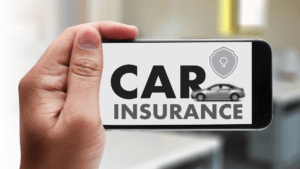
Can the liability limits in your car insurance be raised?
If you are living in California, the required minimum car insurance is as follows:
- Up to $15,000 Liability Bodily Injuries coverage for a single person.
- Up to $30,000 Liability Bodily injury coverages if more than one person is injured.
- Minimum of up to $5,000 as liability property damage.
- $15,000 Uninsured motorist bodily injury coverage for one person and
- $30,000 Uninsured motorist bodily injury coverage if more than 1 person is injured.
The question is, Can the liability limits in your car insurance be raised? The answer is yes. The most recommended liability coverage for your safety is $100/300/100 which I already explained. Though it costs more in premiums, this policy gives you maximum protection should you be asked to pay huge compensation to the driver you injured in the accident.
It is very much recommended you buy much more coverage than what is required by your state as minimum insurance coverage. Carrying basic coverage is cheap not until you are at fault in a car wreck.
How to file an insurance claim?
You have been into an accident and luckily the type of car accident or event you had is covered by your insurance coverage. How do you proceed to file a claim through your company? Alright, worry not for we have you covered.
If you want your claim to be settled quickly and hassle-free, do the following immediately after the car accident:
- Call your car insurance company immediately. Do not wait to leave the scene. Just call your insurance broker or agent as soon as possible. Your insurance company needs to know even if the accident is minor or there are only trivial damages. You never know what the other driver is capable of doing.
- Exchange with the other driver’s phone numbers, addresses, Insurance IDs, registration, and license information.
- Do not admit to being at fault even if it is obvious you are the cause of the accident. Avoid statements like “I’m sorry..”
- Fill out ‘proof of claim’ forms and other supporting documents. Make sure you get and submit a copy of the accident report to your company.
- If your company has a mobile App for the customers, log in and upload accident scene pictures, videos, vehicle damage pictures, etc. Check if you are; required to pay deductibles, if you are entitled to car towing services, or if your car rental is covered or not.
- Some companies want all claims to be submitted before a certain deadline and you do not want to go beyond that stipulated time.
- Supply all the necessary information as required by your insurance company. Also, keep copies of all filled and submitted documents.
- Contact or keep in touch with your insurance company or your adjuster and answer any raised questions.
- Negotiating with any insurance company is harder than you can imagine. I advise you to hire an attorney to make things easier on your side. You will only be disappointed if you think you can outpower those insurance adjusters.
Is there a time limit for insurance claims?
You should kick-start the claim process as soon as possible. Delaying the process only delays claim settlement or you never know any bad decisions that may creep in just because of the delays.
Yes, there is always a limit to your claim. If you carry a $40,000 coverage, you won’t claim a higher figure. The settlement amount you will claim for will be determined by your insurance adjuster.
Remember, insurance follows the principle of indemnity. This principle states that you are entitled to compensation that is proportional to the extent of losses suffered. Your insurance coverage is only there to restore you to the original financial position you were in just before the accident or loss.
If your insurance adjuster estimates that your incurred losses are worth $10,000, you receive that exact amount even though your insurance limit is let’s say higher at $50,000. You are not supposed to gain any profits from the insurance company. Of course, you can negotiate a figure higher than $10,000.
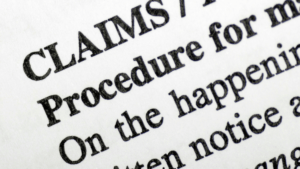
What is the claim settlement process?
After you have submitted all the necessary documents and information as required by your insurance company, you will be assigned an adjuster whose work is to estimate your losses.
Your adjuster researches the cost price of similar cars, evaluates repair cost estimates, and possible deductions like depreciation rate, tear, and ware, etc. You have a right to refute the final settlement fee or accept the terms.
As a piece of advice, always do not accept the first settlement fee. Adjusters come up with a settlement figure well knowing there is room for negotiations. Do the research and get information about prices of cars similar to yours. Kelly blue book should help you with that.
According to the car driver, insurance adjusters always pay the smallest amount possible as a settlement. Research has shown that your first suggested settlement is always $500-1,000 less than what you deserved.
What kind of documents are required when making an insurance claim?
It is not enough to report a car accident and start a claim process by just making a phone call. All claim processes require you to submit various documents.
The following documents may be needed for your car insurance claim settlement:
- Filled claim forms signed by you the insured.
- Copy of your insurance policy coverage.
- Tax receipts
- Car registration certificate.
- Driver’s license
- Copy of the accident police report.
- Estimates for car repair costs if available
- Previous repair bills and proof of payments if available and
- Vehicle inspection report if available.
How to file an insurance claim against another driver?
According to apexedi.com, 1 in 7 car insurance claims in the USA is denied or rejected. This accounts for more than $200 million in claims denied in the USA alone.
The above data implies that you have more than a 14% risk of your car insurance claim being rejected. But if you act smart, you will surely emerge victorious. Believe it or not, getting your deserved payout after a car accident is not a smooth process.
You will be required to file your claim against liability coverage belonging to the other driver.
Here is step by-step on how to file an insurance claim against another driver:
- If you are not the at-fault driver, you will either claim through the other driver’s insurance company but you also have another option of claiming through your own company.
- File a claim through the other driver’s insurance company. Gather information and all proof their client was at fault for the accident. You will need car accident scene pictures, information from witnesses, a copy of a police car accident report, and other personal documents.
- You could decide to sue the other driver and hire attorneys to handle the case. Prepare your proofs against the other driver because his insurance company will back him in the case.
- In the USA, some states are no-fault states. In these states, victims of accidents are required to claim through their own insurance companies with exception of property damages. These states require every driver to carry PIP or medical payment coverage.
- You will likely turn to your underinsured/uninsured motorist coverage if the other at-fault driver has less or no insurance coverage to cover your losses.
- You can also claim through your collision coverage if you think dealing with another company is so hectic. The downside of this is that you will be asked to pay your deductible.
So, make an insurance claim against the other driver the same way you would do through your own company. But the above information should be kept at the back of your mind so that you adjust accordingly in case of any changes.

When not to file an auto insurance claim?
One of the reasons your insurance rate goes higher is your poor driving records. Some insurance companies do believe that, for each car accident that occurred, all drivers are partly responsible. In simple terms, there should be a way you could have avoided the accident, so you partially get penalized too.
This is why you may be deemed 20% or 60% etc at fault for the car accident. As a punishment, filing any claim through your insurance company hikes the prices you will pay in the future.
According to Forbes, your insurance rate will go higher in the USA by 45% after a property damage car accident. If you had an accident where people are injured, be sure to see your insurance rates go higher by more than 47%. To avoid higher insurance prices, simply avoid making many claims.
You should not file an auto insurance claim if:
- The accident was minor and there was no serious property damage.
- If no people were injured in the accident.
- Repair costs are less than your chosen deductible.
- If only your car is damaged in the at-fault accident and you can afford repair costs, you better not file any claim.
When should you report a car accident?
On the other hand, you should report a car accident for subsequent claims if:
- You damaged other cars.
- If people are injured.
- If the repair costs of your car are higher than your chosen deductibles.
- When the damaged car needs much higher repair costs.
Do you need a police report to file an insurance claim in Arizona?
Just like in many other states in the USA, driving your car uninsured is against the law in Arizona. Arizona is a fault state meaning that you will be responsible for all the financial compensation for the car accidents you caused.
If you are living in Arizona, the minimum required liability coverage is as follows:
- The company pays up to $25,000 in Bodily injuries if one person is injured or died.
- Up to $50,000 in Bodily injuries if more than one person is injured.
- Up to $15,000 for costs if there is property damage.
If you suffered car accidents in Arizona, you could be compensated in the following ways:
- File your claim through the liability coverage of the at-fault driver.
- Claim through your collision coverage, uninsured/underinsured motorists coverage, and personal injury protection coverages.
- File a personal injury lawsuit to courts of law if the at-fault driver declines to compensate you.
Just like any other procedure of filing claims after a car accident, a police report is very useful during the claim settlement process in Arizona.

If I damage my own car can I claim on my insurance?
Collision coverage and comprehensive are the 2 policies you could claim against if you damaged your own vehicle.
But remember, Insurance is there to protect your vehicle. Deliberately damaging your vehicle is contrary to this clause and so your claim will be denied.
More so, apart from life insurance, other insurance policies cover accidental events or losses. If the cause of your loss is not as a result of the accident, then the credibility of such a claim is doubted and the insurance company will be right to deny you any payments.
Damaging the car yourself with an aim of filing a claim through your insurance company will be seen as fraud. Punishments for this offense are so serious that they could result in termination of your insurance coverage.
How much will my car insurance go up after a claim UK?
Just like in the USA, making a claim against your coverage in UK raises your insurance rate. Some insurance companies will forgive you if you caused an accident for the first time, but subsequent claims could be tagged to your account for more than 5 years.
If you are living in the UK, your insurance rates could be raised by more than 20-40% after an at-fault car accident claim. The punishment is even higher if there are bodily injuries.
I backed into a pole will my insurance cover it?
Many accidental losses are covered by insurance and these include:
- car accidents
- car collisions
- a car hitting a tree, buildings, and animals.
- Theft
- vandalism
- Weather extremes
- Gap insurance and many others.
If you backed into a pole, the comprehensive car insurance coverage will cover your car’s repair costs. But, before the company pays for the repair costs, you will need to pay your deductible first.
If you damage your own car will your insurance go up?
I have already shown how deliberately damaging your car could land you in trouble with your insurance company. Yes, insurance covers all accidental events of which some are external while others are due to personal errors and mistakes.
If you accidentally damaged your car, your claim will be settled through comprehensive or collision coverage. The downside of these 2 coverages is that they carry deductibles.
If your totaled car is settled at $4,000 but your policy carries a $1,000 deductible, your company only pays $3,000 and expects you to cover the remaining amount by paying your deductible.
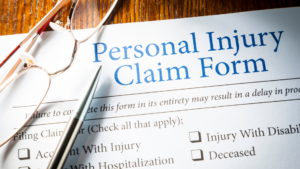
What happens when an insurance claim is made against you?
If you are involved in a car accident with driver B, you or him (B) should be at fault for the car crash. The at-fault driver is the one that is responsible for the financial compensation of the car accident victim.
For instance driver, B should file an insurance claim against your insurance if you are deemed the causer of the accident. In no-fault states like Florida, Hawaii, Kansas, and others, all drivers involved in a car accident are required to claim through their own insurance Personal injury protection (PIP) coverages.
The following happens when an insurance claim is made against you:
- Your insurance does investigations to be sure if you are at fault or not.
- If it is confirmed that you are the accident causer, the insurance sends an adjuster to assess the extent of injuries and or if the car is written off or not.
- Your insurance company pays off the driver whose car you injured. If there are bodily injuries sustained, your company pays medical bills too.
- This car accident record is tagged onto your car and your insurance prices will be raised next time you renew the policy.
Articles you may like:
- Uninsured motorist insurance definition
- What does collision car insurance cover? (ultimate guide)
- How long does a car accident settlement take?
- Hit & Run Accidents- hit and run lawsuit AND Compensation
How to dispute an insurance claim against you?
Following any car accident, you may be deemed the at-fault driver or not. Being declared the at-fault driver has many implications like:
- Raising your insurance rates.
- You could be given a traffic ticket.
- You are liable to compensate the other driver.
You have a right to dispute these decisions but you must get prepared because it’s not going to be a smooth marathon.
To dispute a claim against you, do the following:
- Call the other insurance company or send an email stating your intentions. You can dispute through your insurance company.
- Collect any proof evidence like scene pictures, videos, information from accident witnesses, parts of the car damaged, skidding marks, etc.
- Look at the policy report filed and identify any reporting errors. You may ask the police officer to write an addendum or edit it.
- You can dispute any traffic ticket in courts of law.
- Visit the insurance company’s dispute center and voice your concerns.
- Ask the claims adjuster to re-evaluate all the new evidence gathered and submitted.
- Seek help from the attorneys. Dealing with an insurance company all alone is never easy. These companies are experts at negotiating so it may yield nothing if you decide to do it on your own.
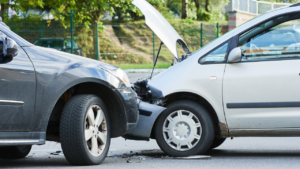
What to do when someone hits your car from behind?
Your car could be hit from behind while parked or driving. Such an event is known as getting ‘rear-ended’. If you are rear-ended, do the following:
- If you are driving, pull over and park your car in a safer place to protect your car and passengers.
- Call 911 and notify them even if the accident is minor. This helps in getting a police officer to show up to compile a police report.
- Ensure that all the passengers in your vehicle are fine and safe.
- Exchange information with the other driver. Get names, addresses, Tel. numbers, insurance details, etc.
- Take pictures of the damages, dents, etc. Take many pictures and try to capture the whole scene including streets, nearby signposts, street crossings, etc.
- Talk to any witnesses and if possible record their audio.
- Call the police or walk over to the next police station and record a statement.
- If you hired a lawyer let him contact your insurance company. If not inform your insurance company about the accident but do not talk much. You could make statements that will affect your claim settlement or be used against you.
- Most probably the driver that hit you could have run away. This is a hit-and-run accident and it is an offense in many states/countries. Let the police and your insurance know.
Whose insurance pays in a car accident?
This depends. Let’s say there was an accident where 2 drivers A and B are involved. Assume driver B is deemed the at-fault driver. which insurance pays for driver A’s bodily injuries or car damages? what about driver B? Below I explain.
Driver-A.
- Since driver A is not the cause of the accident. He will claim from B’s liability insurance coverage for both bodily injuries and car damages.
- Driver A has another option to claim through his collision coverage and or uninsured/underinsured motorist coverage if driver B has no or inadequate coverage.
- Own personal injury protection (PIP)
Diver-B.
Driver-B is the at-fault driver so has the following options he will claim through.
- Own collision coverage
- own personal injury protection (PIP).
Can someone claim my car insurance without me knowing?
On many occasions, you will be in the know if a claim is made against you because you will have exchanged the information at the accident scene, and you probably informed the police and your insurance company.
someone can claim from your car insurance without you knowing if:
- You got involved in a minor accident, and you and the other driver agreed not to make any claims but the other driver later changes their mind.
- If you are a victim car registration clone scam. Someone out there could be legally in possession of the same number plate on their car. If such a person is involved in a car wreck, wrong information is given to another driver. You are advised to inform the police immediately if such a situation arises.

How long do you have to file an insurance claim after a car accident?
There is no exact time at which you should file an insurance claim. Most companies want you to report the accident immediately which kick-starts the claim process. Delaying the reports affects the claim process and your company could even suspect fraud
I heard a conversation with my insurance broker and he says you should report a car accident within less than 30 days, and submit proofs/evidence for your claim not later than 90 days. I have had some insurance companies and other states require you to report and file claims within less than 10-30days.
In summary, the answer to the question, what happens when a car accident claim exceeds insurance limits? is very simple. Insurance companies pay up to the limit of your policy. If the claim exceeds your insurance limits, you will pay from your pockets or savings.
